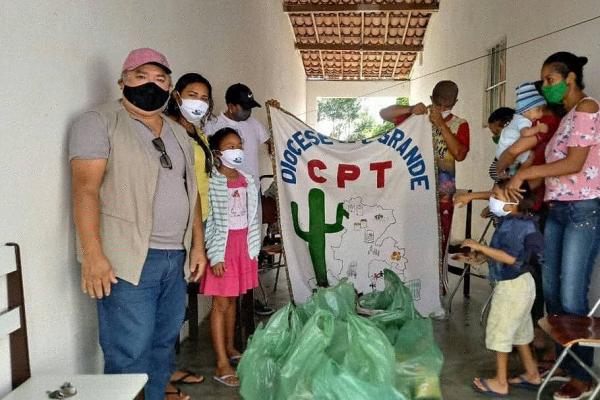MEDELLIN, COLOMBIA – Colombia and the Brazilian Amazon remain two major hotspots for deadly attacks on environmental defenders, a new report from human rights and environmental NGO Global Witness reveals.
Jesuit priest Alfredo Ferro, a member of the Pan-Amazonian Ecclesial Network (RedEclesial Pan-Amazónica or REPAM), said while the Catholic Church and other faith-based organizations are taking steps to combat this trend, it is ultimately the responsibility of government leaders in Colombia and other Amazon-basin countries to protect the rights of Indigneous people, rural residents, and others defending the land.
More than 200 land and environmental defenders were killed in 2019 according to the report released by Global Witness this week. Colombia topped the country rankings with 64 deaths, while Latin America continued its 8-year run as the worst-hit region, accounting for two-thirds of global deaths.
The Amazon region alone saw 33 deaths in 2019. Nearly 90 percent of Brazil’s 24 killings occurred in the Amazon, according to the report.
Understanding the numbers
Ferro, who is based in the Colombian Amazon town of Leticia, said that context is vital to understanding these numbers, particularly in Colombia. Despite a peace treaty signed in 2016 between the Colombian government and the Revolutionary Armed Forces of Colombia (FARC) guerilla movement, there remain areas controlled by armed groups with powerful interests.
In many parts of Colombia, Ferro said, various illegal armed groups — including dissident FARC members — displace, control, and instill fear in local communities close to drug trafficking routes, mining concessions, or other areas controlled by vested interests.
“There are men and women who are raising their voices, who are opposed to the interests of mining, agriculture, big energy projects, narcotrafficking, or many other interests,” he said. “For many armed actors and criminal gangs, these people are an inconvenience. That's why they are killing them.”
Churches not immune to the bloodshed
Paulo Cesar Moreira Santos, a member of the national coordination body of Brazil’s Pastoral Land Commission (Comissão Pastoral da Terra, CPT), a Catholic land rights organization with ties to the National Conference of Bishops of Brazil, said the Brazilian Amazon has “become a battlefield” with high rates of failed assasination, death threats, and home invasions in 2019.
“Murders and threats have been an increasingly common strategy,” he said. “Seeking to prevent deforestation and land grabbing is the same as putting yourself in the sights of a revolver.”
Moreira added CPT’s own members have experienced the violence first hand over the years, with the murders of Sister Dorothy in 2005 and José Cláudio and Maria do Espírito Santo da Silva in 2011. This year, he said, Father Dennis Koltz, a CPT member in the Brazillian state of Amapá, was assaulted and threatened by a farmer.
Moreira said CPT was founded 45 years ago during the height of Brazil’s military dictatorship. The objective was to be a prophetic presence within the local communities and give voice and agency to Indigenous and rural people amid government persecution, threats, and murders in the countryside.
Today, Moreira said, the shared objective of CPT and REPAM is to strengthen communities, helping them advocate for their right to land, clean water, and tradition.
“Being prosecuted and persecuted has always been and will be a condition for any and all who confront the cruelty of the system,” he said.
The role of the church and future sanctuaries
Fletcher Harper, an Episcopal priest and executive director of GreenFaith, a faith-based environmental NGO that is part of the Interfaith Rainforest Initiative (IRI), said churches and faith groups should take action where they can.
He said that the IRI has engaged in a considerable amount of outreach – from politically significant cities in the region to forest communities. Faith groups also have reached out to value-based investors and urged them to divest from the industries conducting activities that often lead to violence. A program utilizing local congregations to protect environmental defenders is also in its very early stages.
Back in Colombia, Ferro said protecting the environment and those who defend it has become a greater priority for the Catholic Church, with environmental actions now guided by Pope Francis’ 2014 encyclical "Laudato Si" that calls for care for our common home.
But he said the church can’t slow the violence without help from the state.
“Ultimately, it is not up to the church, it's up to the state, a state that can protect people when they are threatened.”
Got something to say about what you're reading? We value your feedback!







